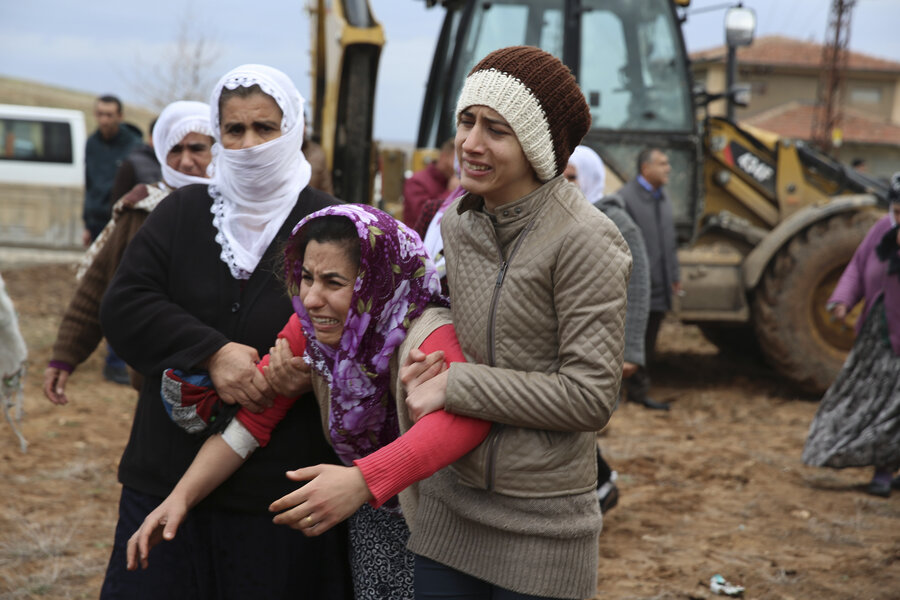Kurdish bombing in Turkey: Is peace attainable?
Loading...
Suspected Kurdish militants attacked a police station in southeast Turkey Wednesday night, killing six people, including toddlers and a baby, and wounding 39.
The assault comes barely 24 hours after an Islamic State (IS) suicide bomber struck at the heart of Istanbul’s tourist district.
Turkish security forces now find themselves fighting on two fronts, taking the fight to IS in Syria and Iraq, as well as seeking to subdue Kurdish group within the country.
Prime Minister Ahmet Davutoglu vowed that his country would continue to battle “every kind of terror."
The latest attack, involving a truck bomb and a firefight between assailants and police in the town of Cinar, was the most sophisticated assault involving suspected Kurdish rebels since a two-year ceasefire broke down last July.
While the Kurdistan Workers’ Party (PKK) did not explicitly claim responsibility, the Kurdish-run Firat news agency reported the events using terminology typical of its depiction of PKK strikes.
The conflict between the Turkish government and the PKK has raged for three decades, killing 40,000 people.
An ill-fated peace process initiated between authorities and the PKK’s imprisoned leader Abdullah Ocalan had held promise, but it collapsed when the Kurdish group killed four policeman in July 2015. Government jets were quick to respond, bombing PKK camps in Iraq.
The bombing of an Ankara rally calling for peace in the Kurdish struggle in October, blamed by the government on Islamic State, was alleged by some to have the whiff of official complicity.
The PKK themselves were in the midst of a unilateral ceasefire at the time, but they scrapped it after President Recep Tayyip Erdogan stated his determination to “liquidate” them.
Islamic State has taken the lives of 140 civilians in the past eight months, and PKK explosives in the same period have killed about 100 security officials, according to The Wall Street Journal.
Since Tuesday’s IS bombing in Istanbul, authorities have ramped up their efforts against suspected operatives, sweeping up scores in raids across the country. Ground forces have also struck at IS positions in Syria and Iraq over the past 48 hours, killing 200 militants, The Wall Street Journal reported.
The fight against the PKK has also intensified in recent weeks, with curfews imposed and numbers of police and soldiers boosted in the contested southeast region of the country.
Moreover, 12 academics have been arrested for denouncing the government’s military operations against the Kurds, and another nine threatened with the same, according to the BBC.
They are being charged under the terms of Article 301, a controversial law that criminalizes any insult of Turkish national institutions. Along with over 1,000 other academics, from both Turkey and abroad, they have signed a statement criticizing security operations and calling for an end to “massacres” in the southeast.
"It is saddening that our academics have signed such a declaration when we are talking about the fight against terror, ISIS on one side and a separatist terror group that killed a baby on the other," said Prime Minister Davutoglu.








